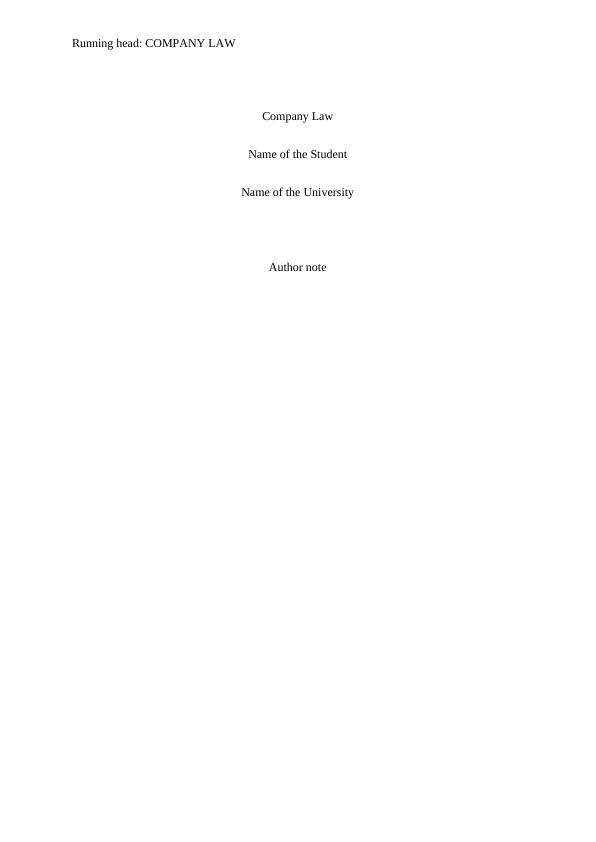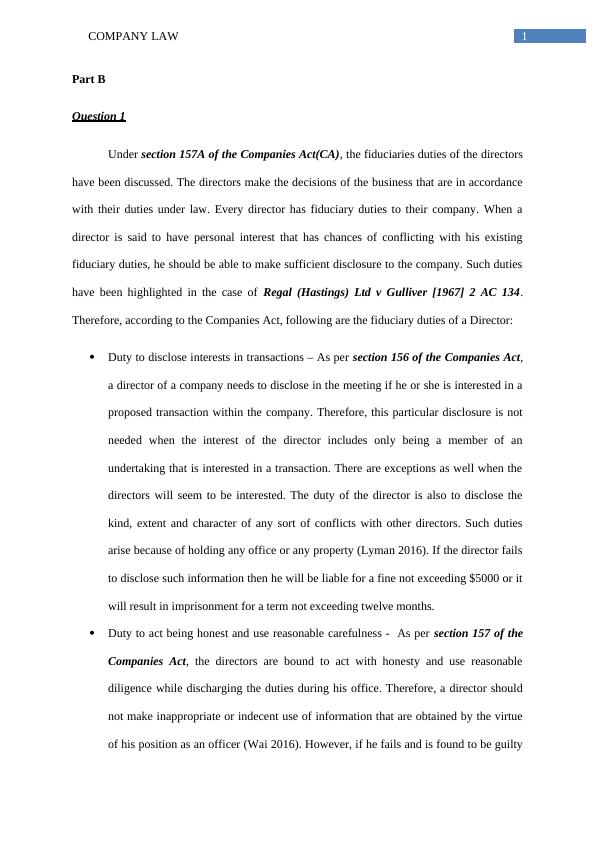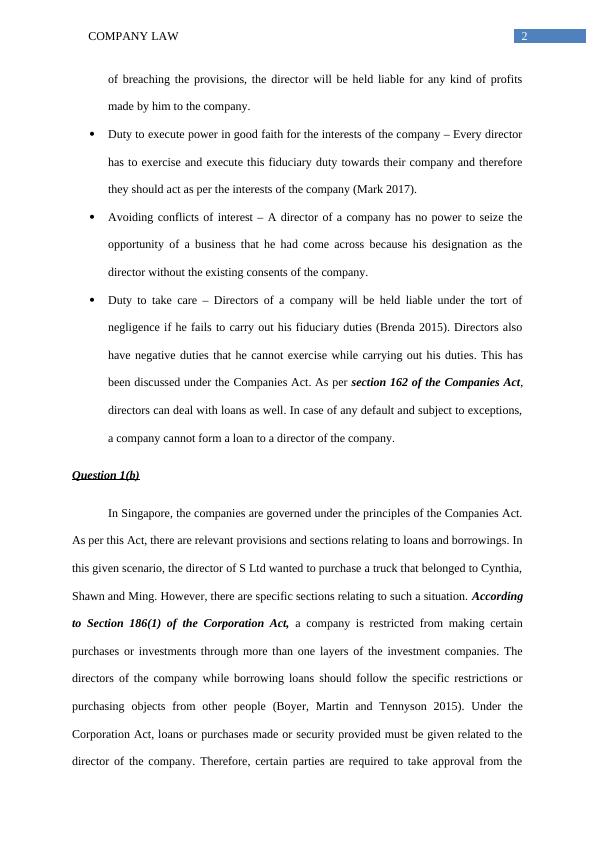Company Law
Describing the procedures provided by CA for a company to return capital to its shareholders and addressing the situation of directors diverting customers to their own business.
9 Pages2314 Words132 Views
Added on 2023-06-14
About This Document
This article discusses the fiduciary duties of directors as per the Companies Act, including disclosure of interests, acting with honesty and diligence, executing power in good faith, avoiding conflicts of interest, and taking care. It also covers the liability of directors in case of company loss and the concept of corporate veil. The article includes relevant case studies and provisions of the Corporation Act in Singapore.
Company Law
Describing the procedures provided by CA for a company to return capital to its shareholders and addressing the situation of directors diverting customers to their own business.
Added on 2023-06-14
ShareRelated Documents
End of preview
Want to access all the pages? Upload your documents or become a member.
Commercial Law: Case Study Analysis
|7
|1157
|273
Business Law
|6
|1238
|361
Corporation Act: Duties and Liabilities of Company Officers
|6
|1708
|464
Laws 19032- Company and Association Law
|11
|2432
|379
Groeneveld Australia Pty Ltd & Ors v Nolten & Ors (No 3) [2010] VSC 533
|12
|1234
|24
Understanding the Duties and Responsibilities of Directors in Company Law
|6
|1743
|293



